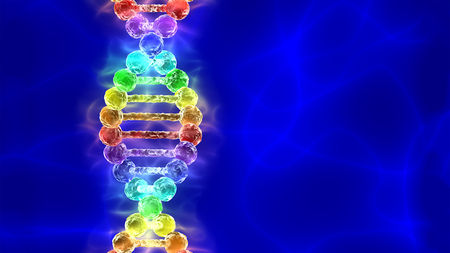
Erin Spicer, Staff Writer
This past week, several national papers released articles that claimed to have more information on the so called “gay gene.” Newspapers such as The Washington Post and The New York Times were reporting on a new study that was published in the Journal of Science, stating that same-sex sexual behavior is determined by a combination of genes and environmental and social factors. Researchers in the study stated they hoped the results of the study would help people to understand that being gay is entirely natural and a normal part of human nature. While the intentions of research members were well-intentioned, the rest of the scientific community showed increasing concern over its publication.
Many geneticists and researchers were worried about the almost definite backlash that this study would release on the LGBTQ community. The idea that homosexuality can be pinned down to a specific set of genes is a dangerous notion; this could possibly spur homophobic organizations to advocate for gene-manipulation or gene-erasing, in order to try to erase homosexuality from their community. It also leaves members of the LGBTQ community vulnerable to ignorant and dated claims that homosexuality is a disease or a disorder that can be corrected through treatment. The leaders of the study were aware of the possible abuse the information their study could instigate but hope that their message will enlighten more people than it divides.
The study, led by Dr. Benjamin Neale, collected the genetic data of 408,000 women and men from a British database and analyzed it. The participants, who were between the ages of 40 and 69, were asked a series of questions pertaining to their health and behavior between 2006 and 2010. The researchers combined this data with genetic testing from approximately 70,000 customers of an American genetic testing service 23andMe. The members of this study were all white and did not include trans people, which severely limited the scope and accuracy of the study. The results of the study found that genetic effects most likely account for 32 percent of whether or not someone will engage in same-sex behavior.
Some positive findings of the study were that the younger members of the study reported more openness to the idea of same-sex intercourse than the older members. This piece of information showed an increase of social acceptance, which is important considering the older members of the study grew up when homosexuality was criminalized in Britain and considered a psychiatric disorder for most of their lives. Dr. Neale commented that the contrast between older and younger participants exemplified the struggle to find an accurate representation of biological information that has been steeped in the domination of societal attitudes. The participation of the subjects demonstrates their willingness to change the narrative from one that demonizes homosexuality and same-sex relationships to one that accepts diversity and understands it.
While Dr. Neale’s study was unable to pinpoint the exact set of genes that determine whether someone will engage in same-sex activities, he hopes that the takeaway from the study will be that diversity is a key part of human nature. Humans are biologically unique, and it is because of this uniqueness that humankind has been able to evolve and survive. Dr. Neale hopes this study will help show that diversity is something to be embraced and encouraged because it is an intrinsic part of human nature.
Leave a Reply